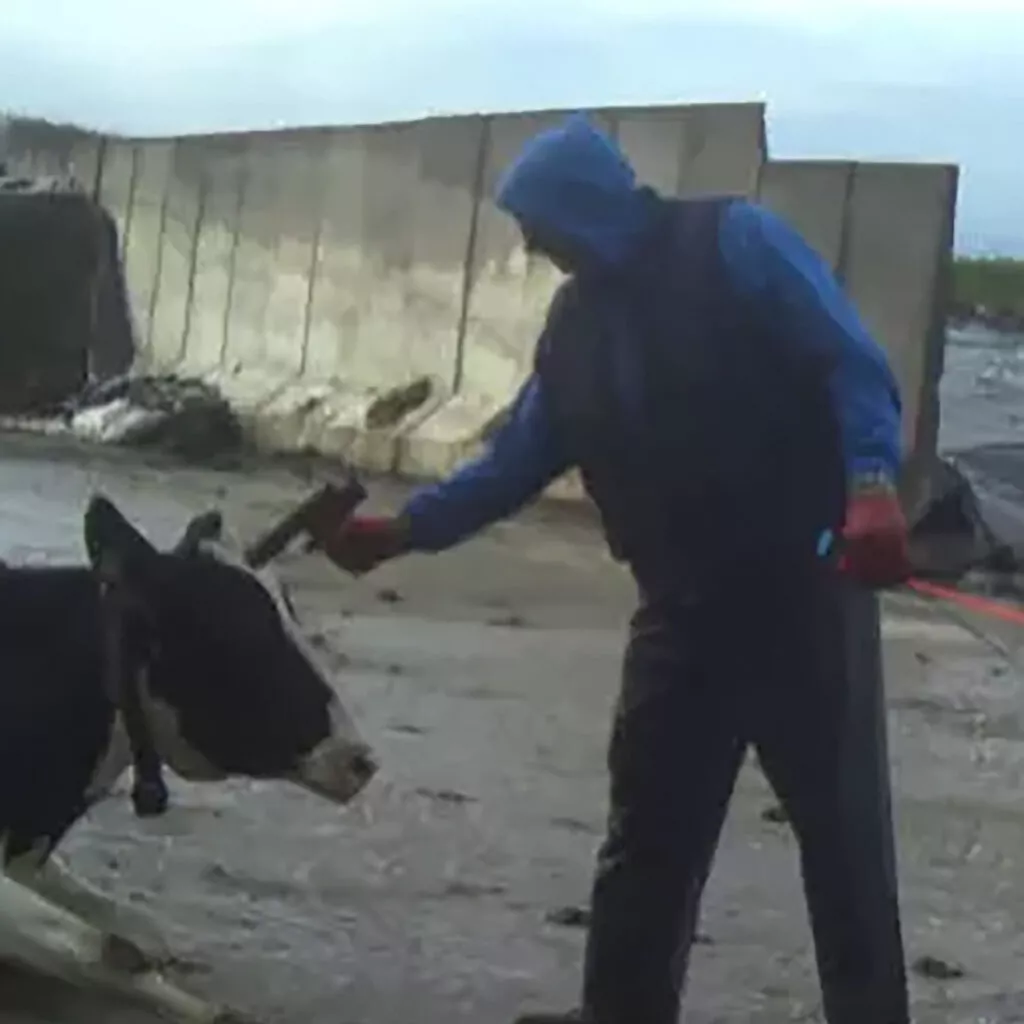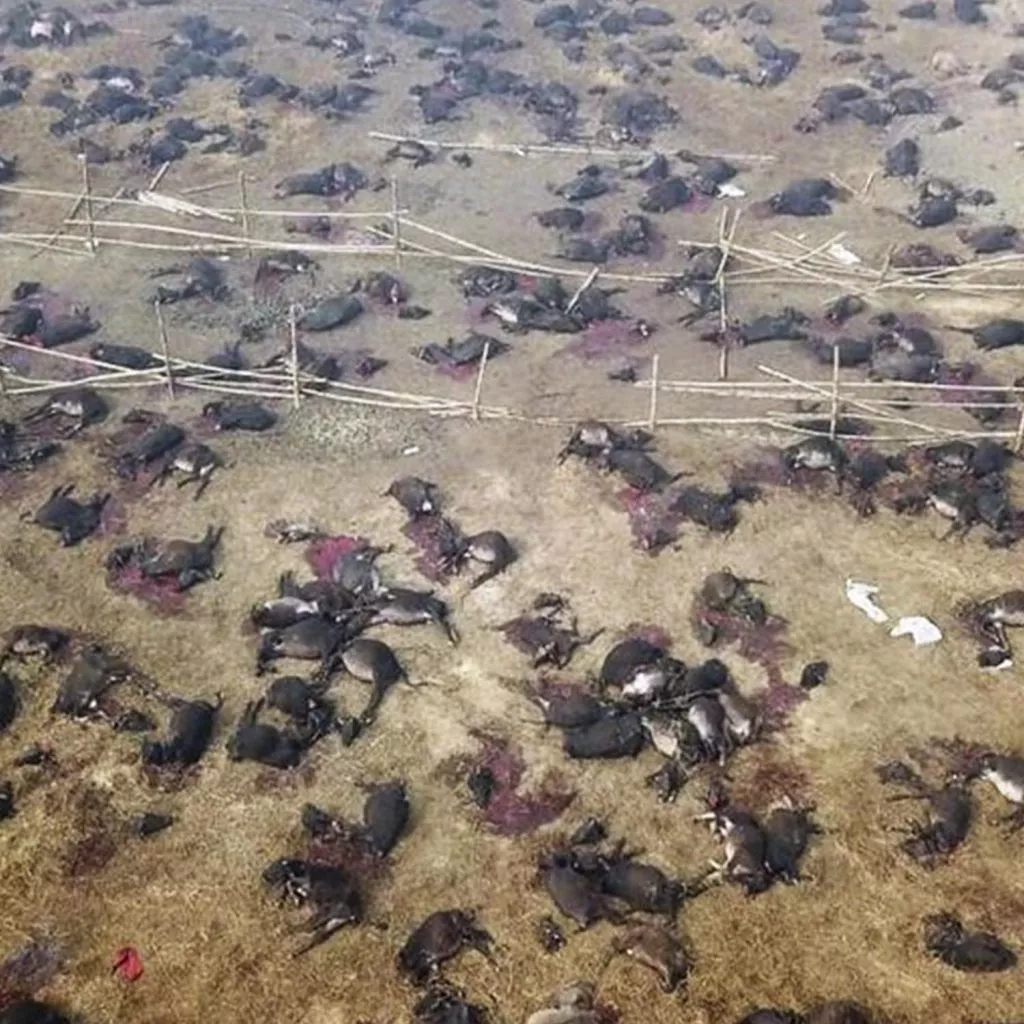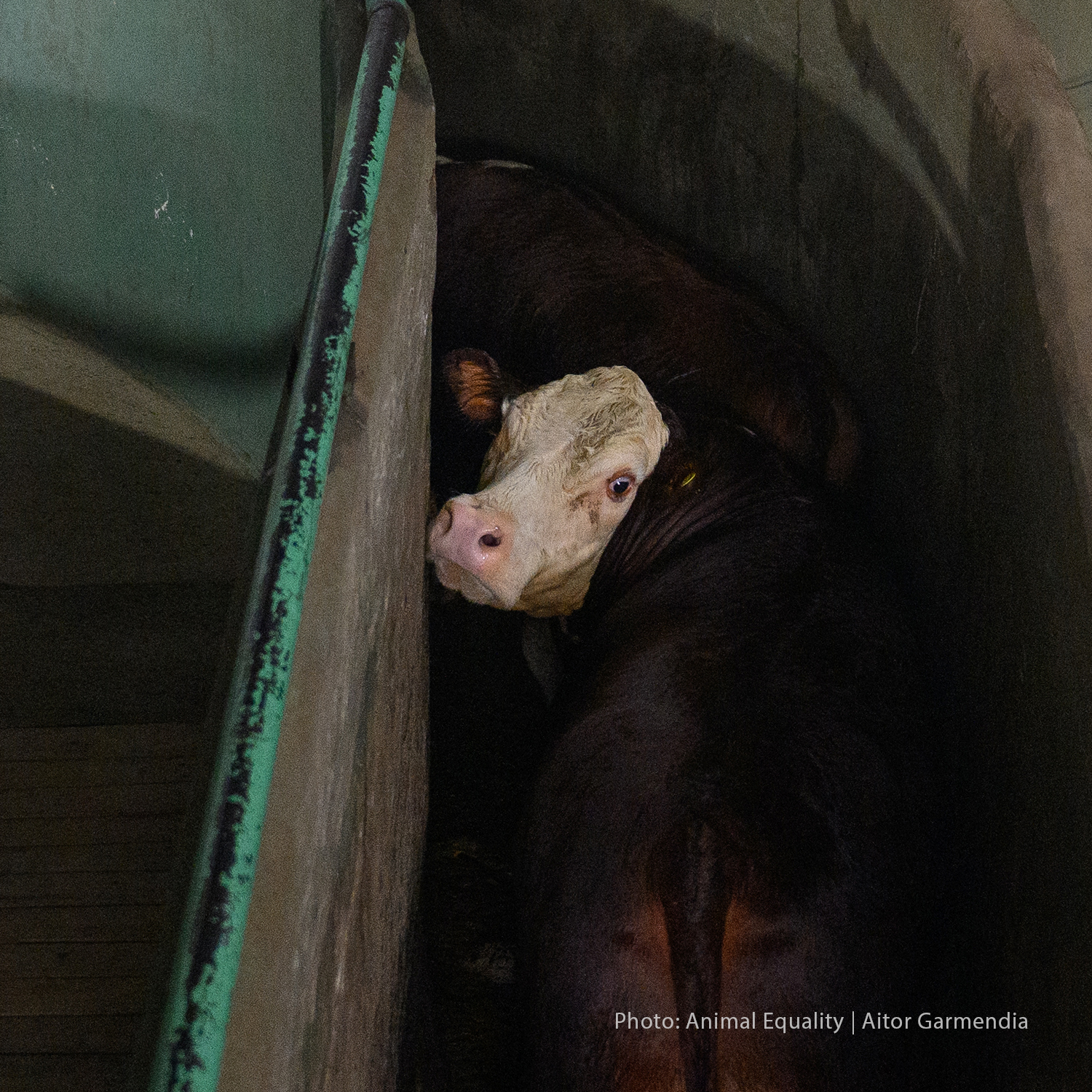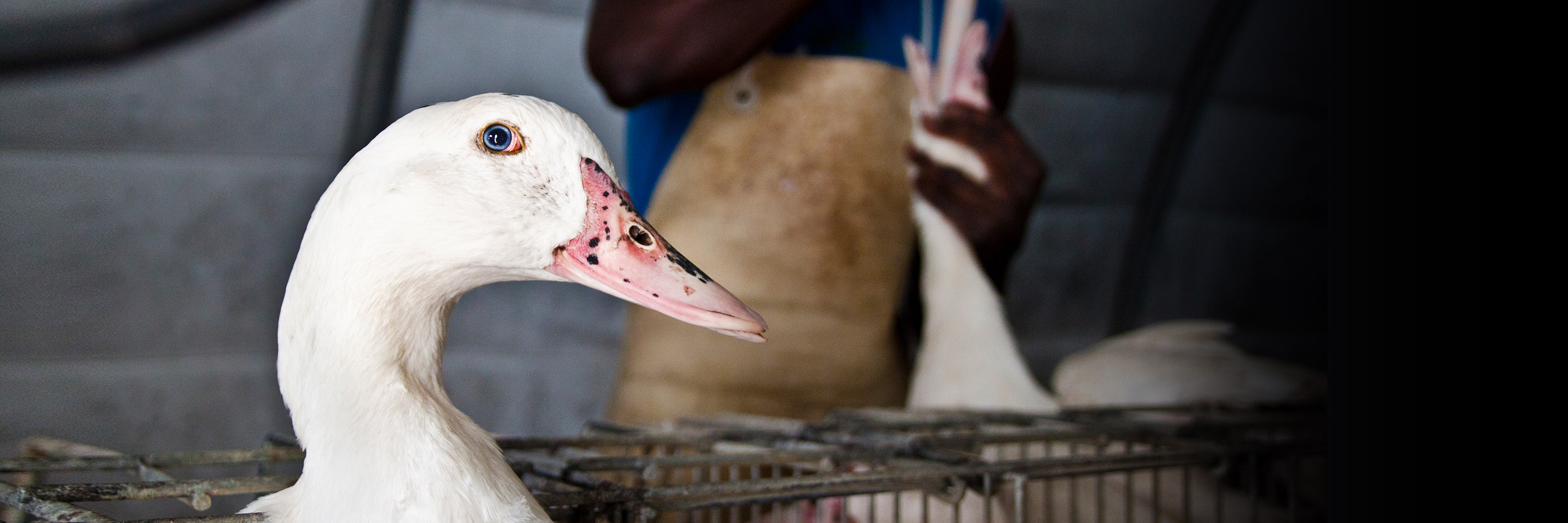
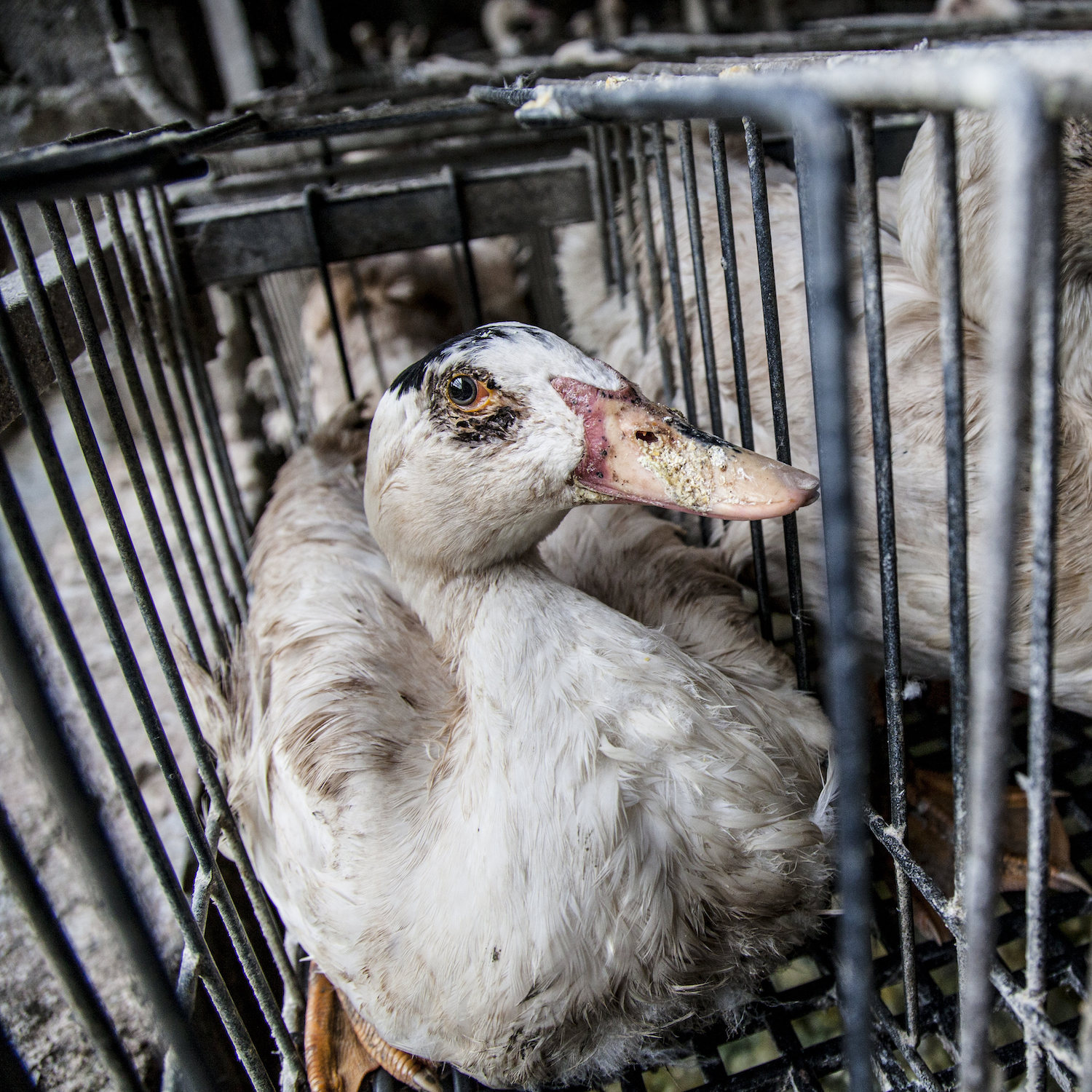
Changing the world for ducks and geese used for foie gras
For over a decade, Animal Equality has been on a global mission to end the force-feeding of ducks and geese for foie gras. From the bustling streets of Brazil to the historic halls of the UK Parliament, Animal Equality is driving change for animals in Italy, Spain, Germany, Brazil, India, the US, and the UK.
What is foie gras?
Foie gras, French for “fatty liver,” is produced by force-feeding ducks and geese until their livers swell up to ten times their normal size. This process involves inserting long metal tubes down the birds’ throats multiple times per day and pumping their stomachs with large amounts of food. After slaughter, their livers are processed into an expensive dish that has been banned in several countries.
Here’s how Animal Equality is taking a stand for ducks and geese trapped in the foie gras industry:
Brazil
Since 2020, Animal Equality has been at the forefront of the fight against foie gras in Brazil. Initially, Animal Equality defended a São Paulo law banning foie gras sales, but it was overturned by the Federal Government.
Undeterred, Animal Equality turned our focus to Federal Bill 90/2020, which aims to ban force-feeding nationwide. Our petition, which has gathered over 200,000 signatures, is the largest of its kind in Brazil. The bill is now in its final stages of consideration.
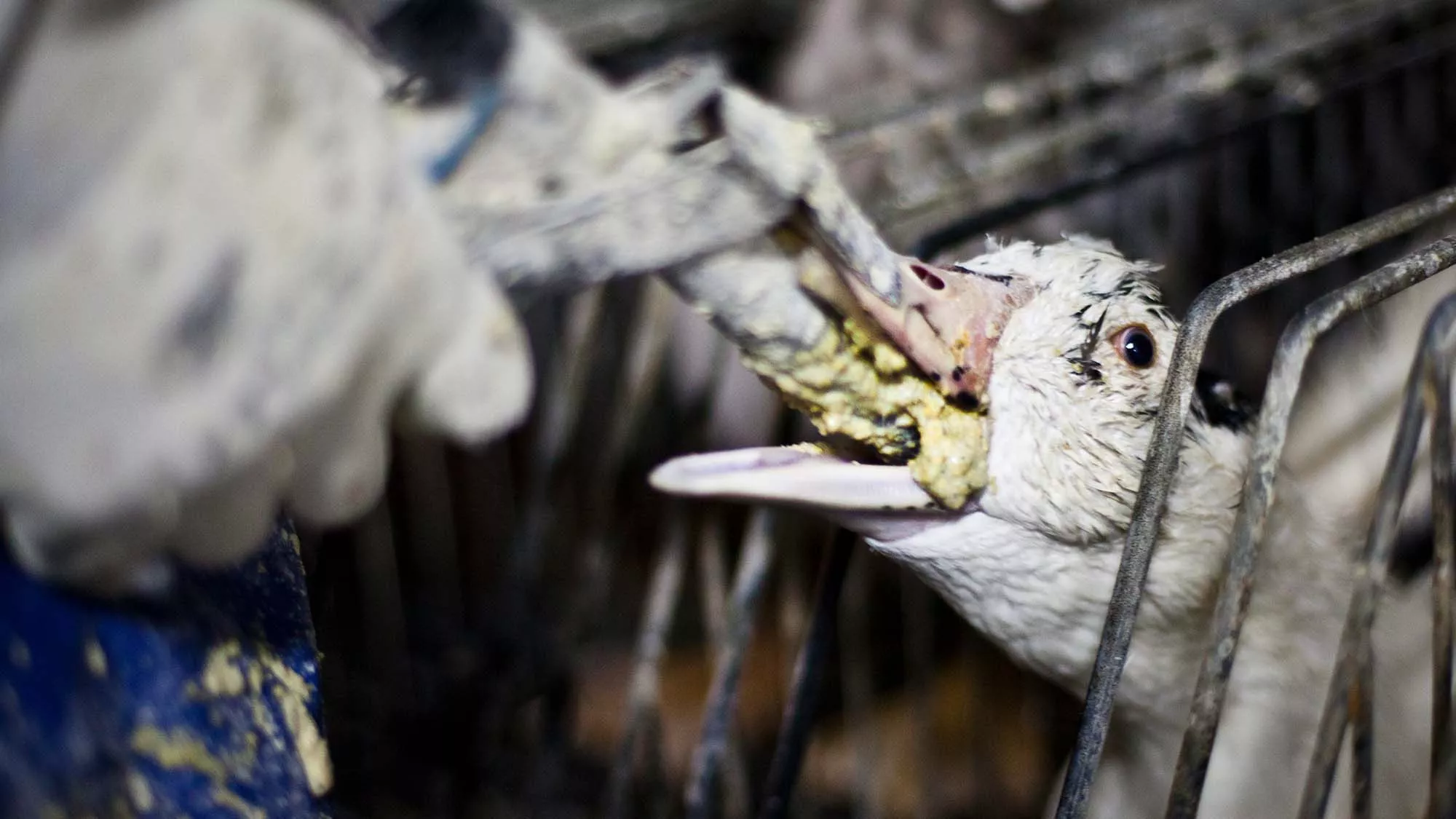
Germany
Animal Equality in Germany has been protesting foie gras sales for over a decade, gathering outside warehouses, department stores, and even the French Embassy. In one such protest, advocates assembled outside Europe’s second-largest department store with the bodies of ducks who had died in the foie gras industry.
Animal Equality’s “End Force-Feeding” campaign has since collected over 74,000 petition signatures. Approximately 58,000 of these signatures were delivered to the Federal Government Commissioner for Animal Welfare during a demonstration in September 2023.
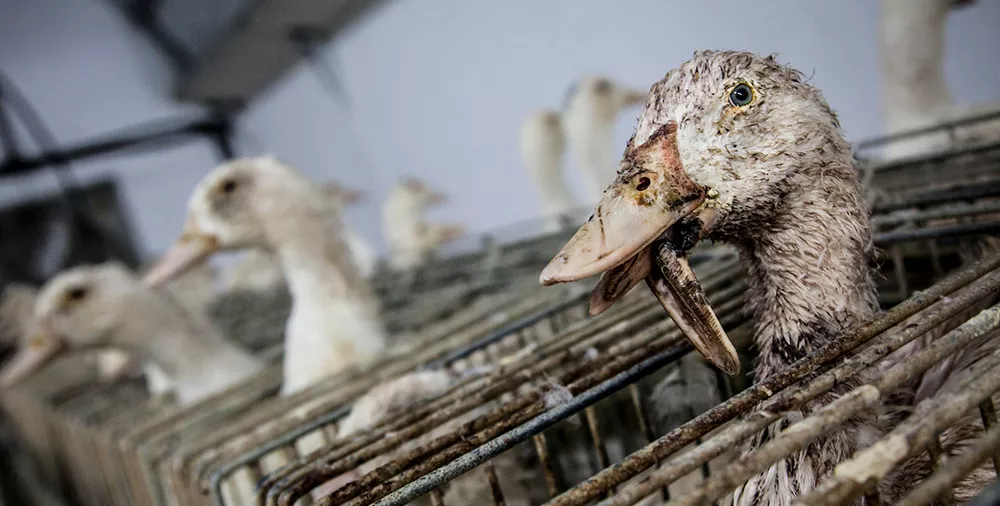
India
Between 2012 and 2014, Animal Equality’s Executive Director for India–Amruta Ubale–worked tirelessly to secure a foie gras import ban.
Armed with investigative footage from foie gras farms in France and Spain, Ubale used India’s Prevention of Cruelty to Animals Act to argue against foie gras imports. Despite bureaucratic hurdles, supportive officials helped finalize the ban in 2014.
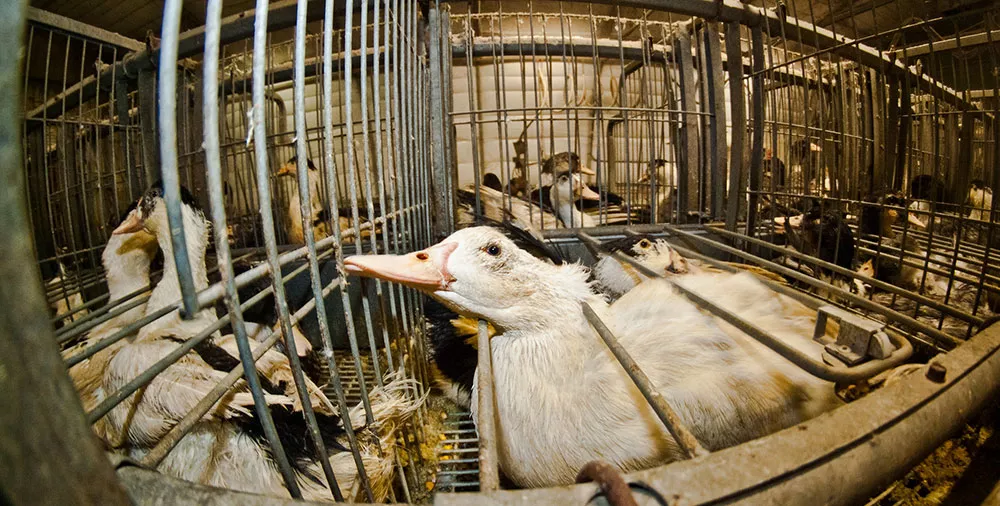
Italy
In November 2023, Animal Equality in Italy launched a petition that has reached over 100,000 signatures. This petition urged the government to support an EU-wide ban on force-feeding ducks and geese, as five European countries still allow it.
As a result of our campaign, 44 parliamentarians endorsed our request, and five parliamentary acts were filed by members of four different parties. In May 2024, deputies officially discussed force-feeding with the Italian government, and the government admitted that it is a cruel practice.
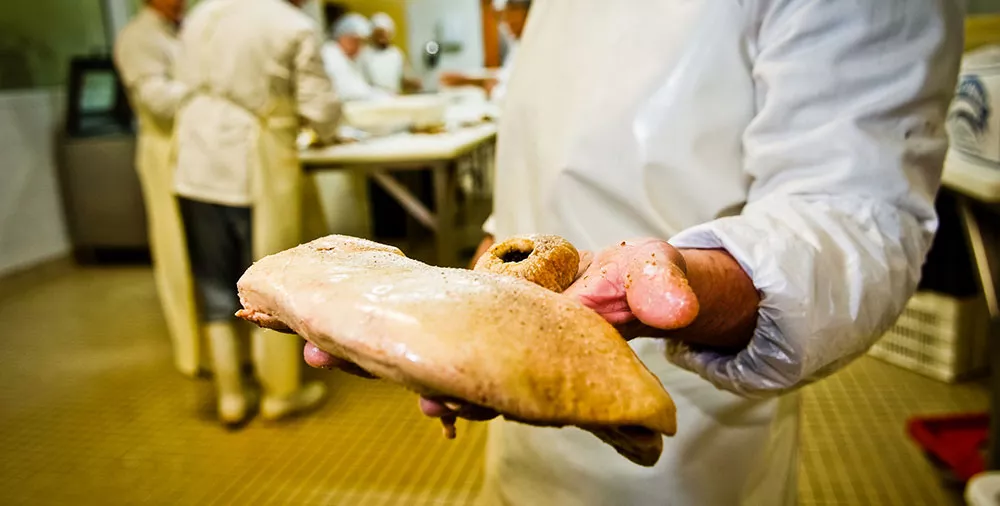
Spain
Animal Equality in Spain has been defending ducks and geese for over a decade, conducting investigations into foie gras farms. Advocates have even staged impactful demonstrations, including projecting investigative findings in Madrid’s Puerta del Sol.
Animal Equality has used information booths, media campaigns, and celebrity collaborations to spread awareness. Five years ago, the team launched a legislative campaign urging the Ministry of Agriculture to ban force-feeding, a fight that continues today.
For three years, Animal Equality in Spain held large protests in Madrid on the International Day Against Foie Gras, as well as outside the Ministry. In 2024, the team expanded its efforts to include corporate outreach, targeting major companies associated with foie gras.
United Kingdom
Despite foie gras production being illegal in the UK, the country imports hundreds of tons each year. Animal Equality has called for a UK import ban, securing cross-party political support and collecting over 280,000 signatures. Celebrities like Ricky Gervais and Joanna Lumley have endorsed the campaign, which has been covered by major media outlets like The Times, The Guardian, and BBC.
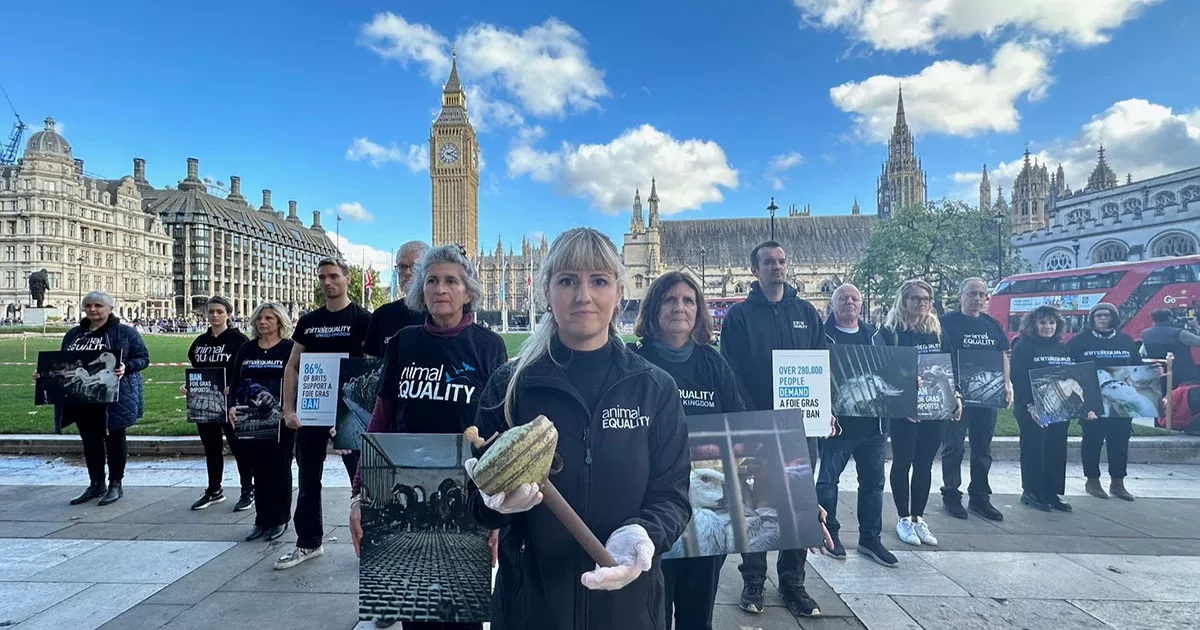
United States
Animal Equality has been on a mission to ban foie gras in the US since February 2022, gathering over 150,000 petition signatures. In 2022, our Legal Advocacy Counsel pushed for a ban in Portland, receiving strong support with no opposition at City Council meetings.
By March 2023, Vancouver, Washington, residents joined the cause, wearing “Ban Force-Feeding” T-shirts at City Hall. This year, they were joined by Ann Arbor, Michigan, where Animal Equality’s active petition urges the City Council to ban foie gras sales.
End animal cruelty in your own home
As ducks and geese continue to suffer in the foie gras industry, you can prevent similar cruelty to pigs, cows, and chickens by choosing plant-based foods. To get started on your plant-based journey, visit Love Veg for resources and inspiration.
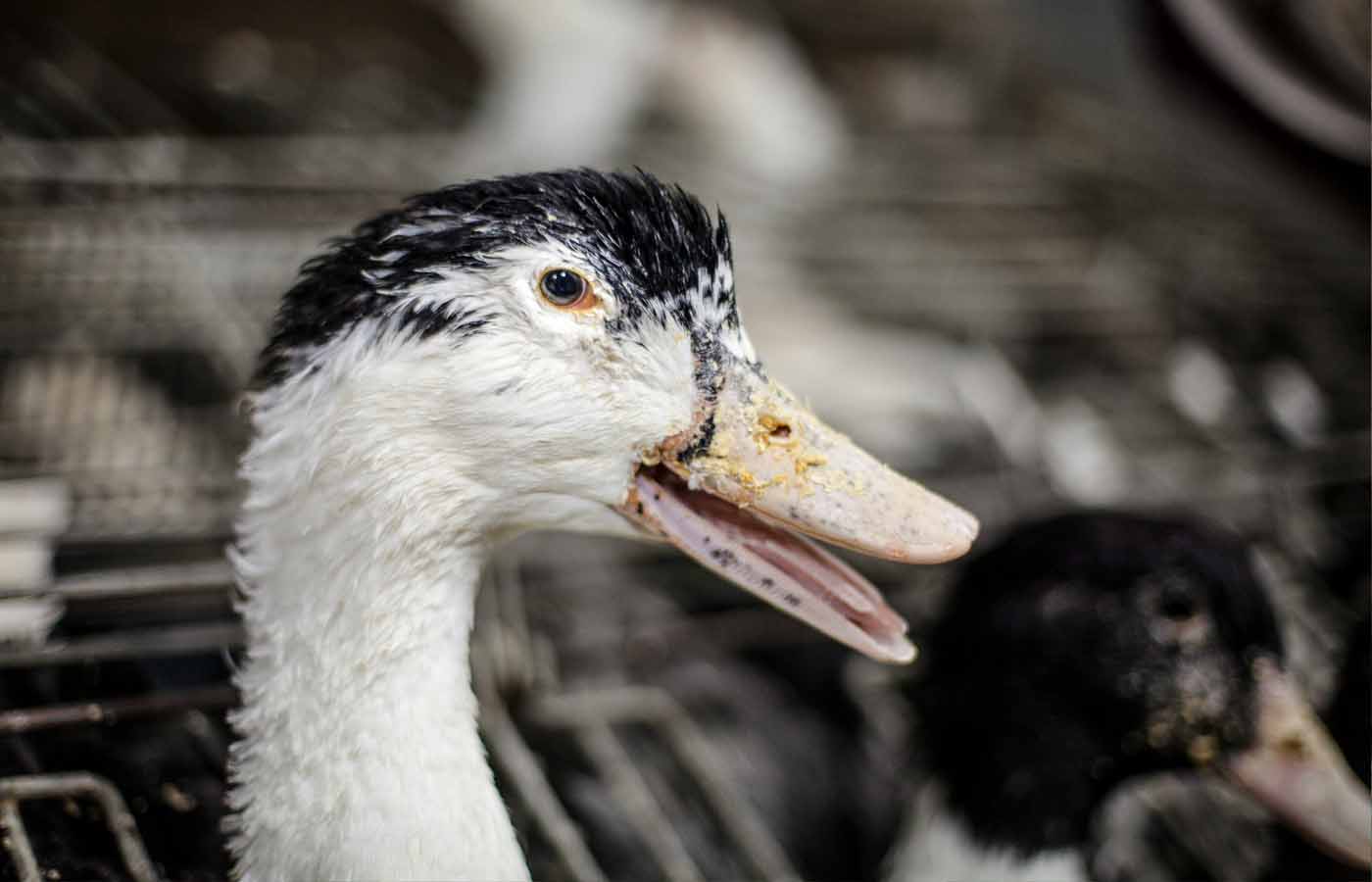
PROTECT DUCKS
Even before hatching from their eggs, ducklings communicate with their close‑knit families.
Protect these families by eating plant‑based and ditching animal products.
Recommended
